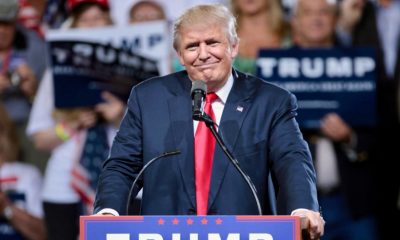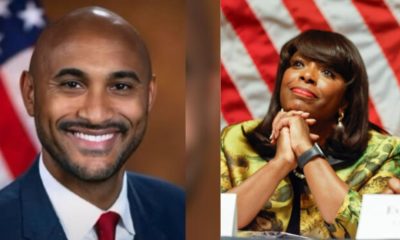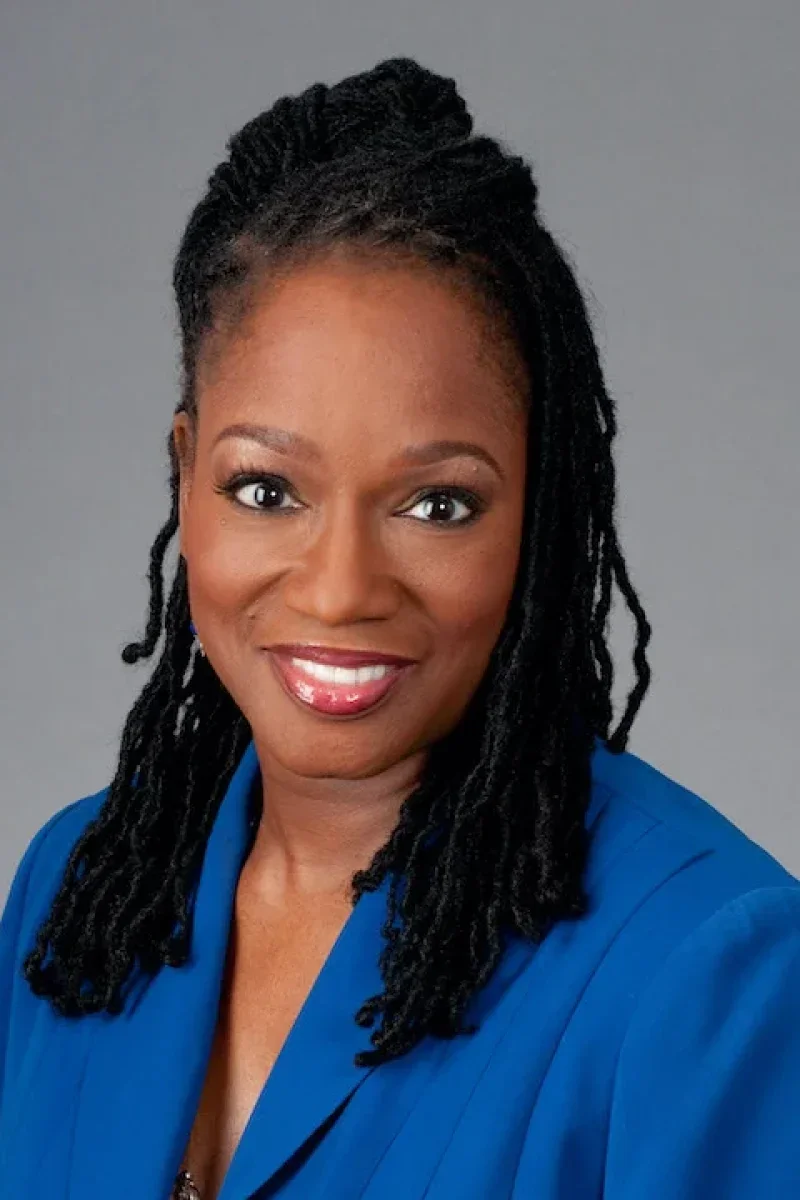Politics and Current
“I couldn’t vote” stickers draw attention to the issue of voter suppression
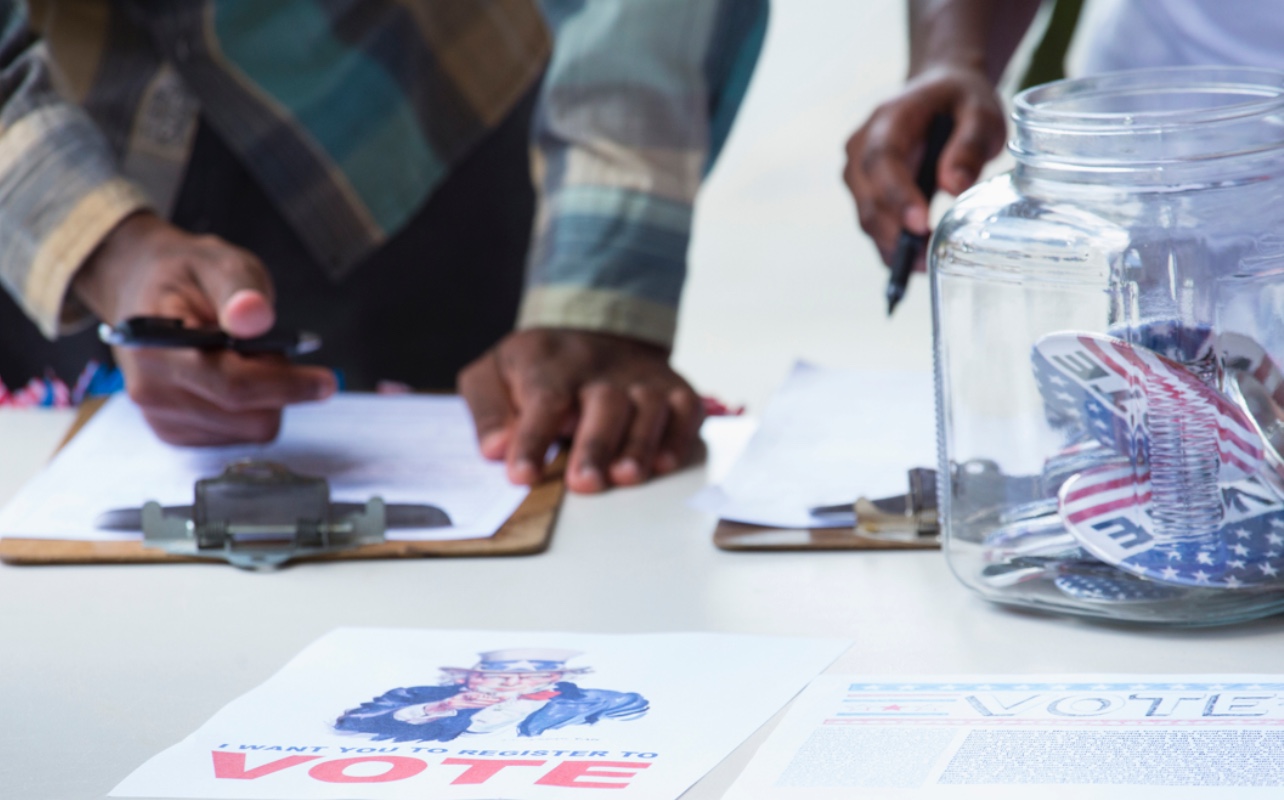
New “I Couldn’t Vote” stickers have been released to draw attention to voter suppression. According to the voting rights organization VoteAmerica, which designed the sticker, it has partnered with Public Domain.
Rob Colucci and Zack Roif are co-founders of the initiative. Colucci likened it to the “I voted” sticker that many Americans receive after voting.
“We took over the ‘I voted’ sticker to really give a voice and a face to the millions of people who are suppressed by voting.”
– said Roif listening to the story people whose voices were suppressed caught his attention and prompted him to take motion.
“When you hear one story (of voter suppression), you can’t look away from the problem.”
The campaign uses multiple methods to educate residents about voter suppression, including in-person testimony.
VoteAmerica and Public Domain use stickers to raise awareness. Students from Georgia decided to protest.
BLACK ENTERPRISES reported on Georgia students marching on the Atlanta Morehouse campus to protest the SB201 Election Integrity Act, which was passed in 2021.
The law prohibits volunteers from giving voters water and food while waiting in long lines to vote.
Nicole Carty, executive director of the student organization Get Free, spoke about what she calls the law’s “inhumane” provisions.
“The actual criminalization of such an act of humanity and dignity is so clearly dehumanizing. It really illustrates the broader inhumanity and inequality of all these voter laws that are going on. It’s not just that you can’t give water. Many of the most insidious elements of these anti-voter laws lie deep in bureaucracy and Jim Crow. So we use it to shed light on what is dehumanizing about these laws.”
The reference to Jim Crow refers to policies intended to keep black people out of the ballot box. Policies reminiscent of the “grandfather clause” and the poll tax placed financial and historical barriers to voters.
Although restrictive policies began in the nineteenth century, they continued to be used well into the Jim Crow era.
“It was only President Lyndon B. Johnson who introduced the so-called Voting Rights Act of 1965, thanks to which Congress succeeded in putting an end to discriminatory practices,” Encyclopedia Britannica quotes.
Politics and Current
Trump’s staff are trying to stop the “abuse” of Elon Musk’s relationship with the president, who cannot demand him because “there is no leverage over him, and Elon gives Zero FS”
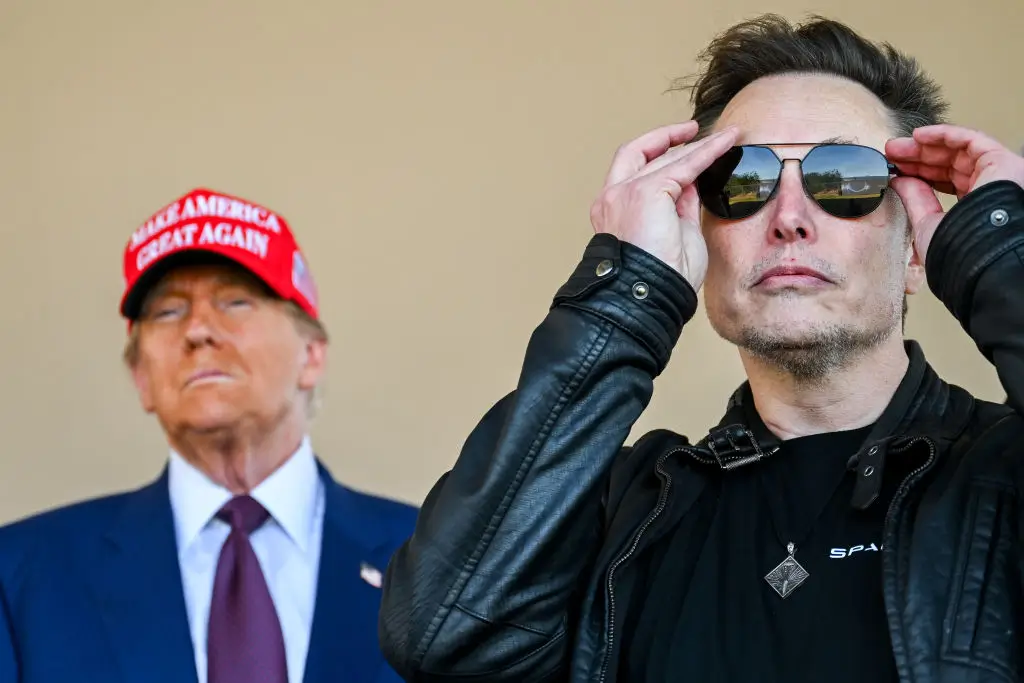
He is a spoiled brat of the inner circle of the magician, opening the thumb with Donald Trump’s “Tatus”, seemingly remaining a privileged son.
A jealous older brother Steve Bannon, a former adviser to Trump, who once enjoyed the same close president, declared war with the younger, richer Nemesis a couple of months ago, swearing that he banished him on January 20.
But this date has passed, and Elon is still standing, often alongside the president.

However, this week, the General Director of Tesla could go too far. Musk undermined Trump’s announcement on Tuesday about an investment price $ 500 billion in the infrastructure of artificial intelligence, claiming that supporters of the “Stargate project” only a fraction of the proposed investments price $ 500 billion.
He even published a joke This suggested that the directors were burning Crack “to come up with the number of $ 500 billion for Stargate.”
Bannon saw, telling Musk journalists, “he should not reverse what the president was already talking about. This is unacceptable and unsatisfactory. You see how he is out of control.”
Trump, when asked about the number of Musk’s failures at a press conference on Friday, seemed to move his arms.
“I mean that Elon does not like one of these people,” Trump replied, referring to musk contempt for the general director of OPENAI Altman itself, one of the primary investors of the Stargate project.
That’s all? No pink slip? Even insult? What does the President’s Musk have?
“It is obvious that he abused the proximity of the president,” Trump’s ally he said Politico. “The problem is that the president has no levers over him, and Elon gives zero f – s.”
As Politico noted: “It is very unusual for the senior adviser-Muska-in public to criticize the president’s initiatives, and his broadly favorable speculation in GOP circles about whether he and Trump will finally seem.”
But there are no signs of the upcoming breakup. Trump is unable to hide his feelings and although there have been reports that he has enough musk, the general director of Starlink retains almost unusual access to the president.
Musk even has an office in West Wing, during which he pilots the “Department of Government”, an advisory commission created by Trump to eliminate waste in the federal government.
“We are now working with him to understand his ideas – the ideas are innovative. Make done not so much,” said a political official of the White House.
Bannon called on the chief of staff of Susie Wiles to “sit (musk) down” and “immediate sorting”.
He should already know: no person puts Elon in the corner.
Politics and Current
Black historians and leaders condemn the executive order of Trump addressed to the Smithsonian African American Museum: “Literal attack on Black America” - essence
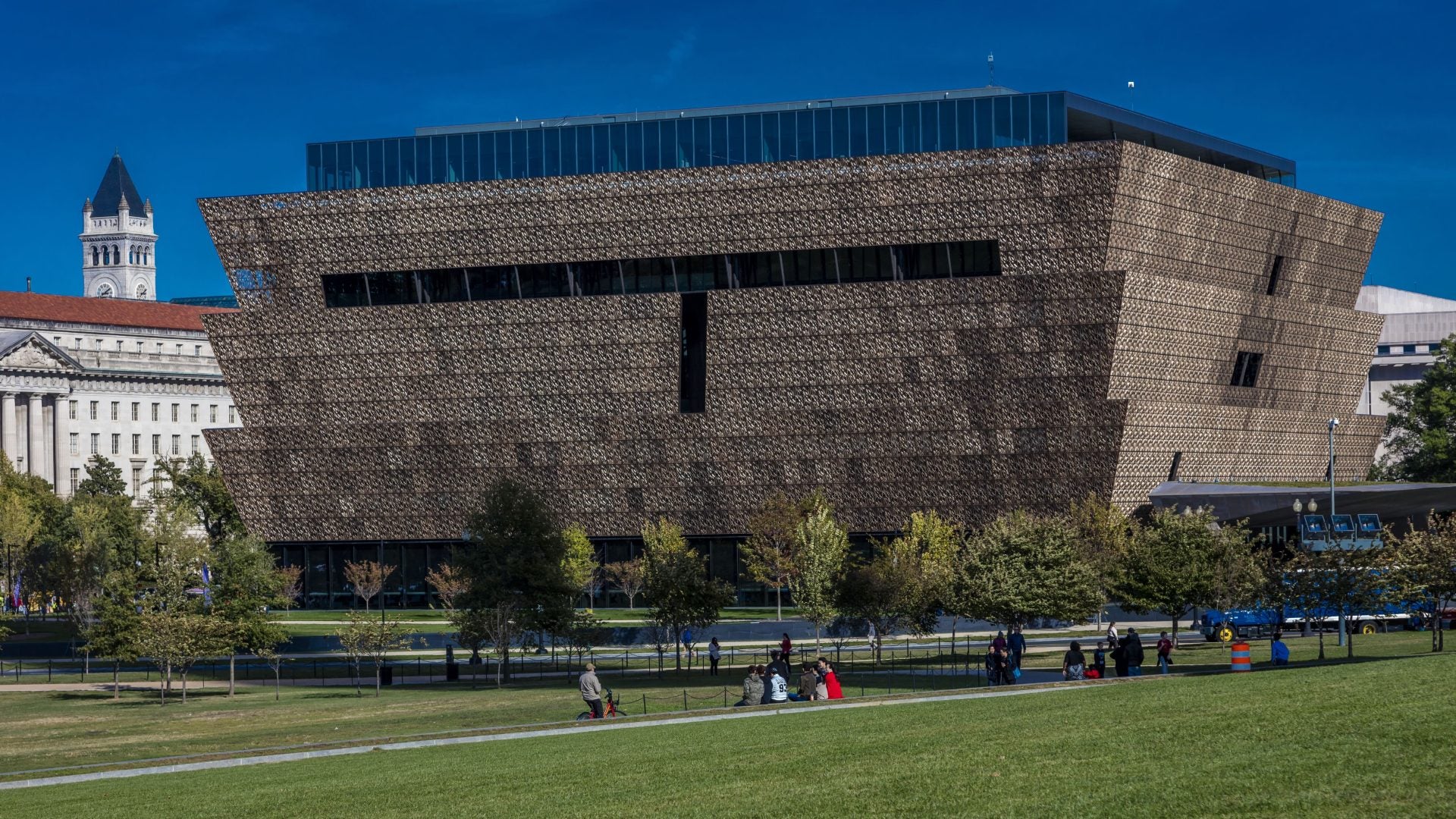
The National Museum of African American History and Culture, Washington, near the Washington monument. (Photo: Joe Sohm/Visions of America/Universal Images Group by Getty Images)
One of the latest executive orders of President Trump is to arouse serious slack and for a reason. New order entitled “Restoring truth and mental health to the history of America” He follows the Smithsonian institution particularly the National Museum of History and Culture of African American-conquering it consisting in pushing “a divisible, focused ideology on the race.”
But about this: the executive order ignores key facts about the history of America, akin to the founders’ fathers wrote slavery in the structure and announced enslaved people as three fifth people.
As Essence informed earlier, the order is about by JD Vance Vice President liable for reviewing the museum content and gives the internal secretary Doug Burgum the right to examine whether any monuments have been removed or modified “to consolidate a false reconstruction of America’s history.” In other words, direct effort is to rewrite history to match the president’s narrative – one which removes the influence of racism and black contribution to the nation.
In 2017, at the starting of his first term, Trump actually praised the African American Museum and culture, saying that “he was deeply proud, that there is now a museum that honors millions of African Americans and women who built our national heritage.” Now he conducts the effort to undermine the institution itself, which he once called the treasure. But historians and black leaders don’t withdraw. As Clarke put it: “Let’s be a bright, black story is America’s story. Every rhetoric that opposes this concept is not only incorrect, but grossly racist.”
Historians, supporters of civil rights and black political leaders shouldn’t have this. Here’s what that they had to say about the latest attempt to whiten history.
Politics and Current
HHS Secretary HHS RFK JR. Fluoring in water can worsen health differences for black Americans
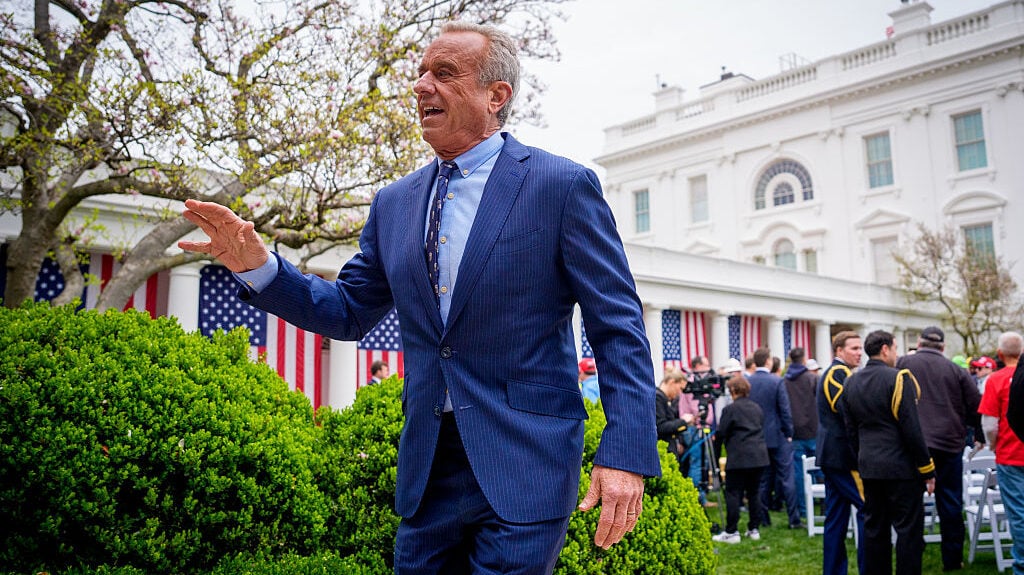
The United States of the Secretary for Health and Social Welfare, Robert F. Kennedy, Jr., reversed the tenth anniversary CDC guidelines to recommend water fluoridation. The position applies to public health experts who claim that practice has reduced the occurrence of oral disease.
Kennedy, who has long been a skeptic of fluoride safety in the water, announced on Monday that he would order CDC (Center for Disease Control and Prevention) to stop the advisory advice for countries about water fluoridation, fulfilling the promise he made after the election of President Donald Trump in November last yr. On the identical day, the Environmental Protection Agency (EPA) announced that it will start reviewing “new scientific information” on the potential health threats of fluoride in drinking water, in keeping with the Associated Press. The Federal Agency is responsible for determining the utmost allowed fluoride level in public water systems.
As the perfect health secretary in the country, Kennedy doesn’t have the best to force states to stop the fluorisation of drinking water, but taking a step to order CDC reversal in this matter could have a major impact. . CDC Earlier he said that fluorine in drinking water strengthens tooth health and reduces the niches, replacing minerals lost over time for normal consumption.
The federal government has supported Water fluorization from 1950 and started to find out the rules on how much fluoride needs to be added to drinking water in 1962.
Public health experts questioned that there’s a threat to the health of fluoride in drinking water, especially considering the fluoride level allowed for 0.7 milligrams of fluoride per liter of water. Revelation of recommendations and potentially reduction or elimination of water fluoridation concerns a very negative impact on health supporters who’re afraid of black and brown communities.
King said that eliminating the usage of fluoride in drinking water, combined with a disproportionate lack of access to healthcare, may prove harmful to black and brown American children and adults.
“These populations are particularly threatened due to the limitation of dental insurance, and the lack of available dental suppliers. The increased incidence of the dental recess and the occurrence of expensive conditions that can be prevented can be the result,” he explained.
Scientific data show that the differences in the health of the oral cavity amongst black children have existed for years, despite the intervention of public fluoridation of drinking water in their communities. According to Study from the National Institutes of Health“Although the availability of insurance has increased, research indicates that it remains unused by the African American community.”

There are also other aspects that could be available apart from access to insurance and care. “Socio-cultural factors also affect the way African Americans experience oral health, from the patient’s relationship with the value determined on the health of the oral cavity,” notes the NIH study. “African Americans have a fragile history with the medical community, and sometimes they show evidence of distrust for doctors. This distrust can lead to the avoidance of African Americans.”
Without the intervention of fluoridation, public health experts are afraid that the health of the Black Americans may worsen.
Administrator EPA Lee Zeldin praised Kennedy’s move about water fluoridation and said that the brand new review of the agency would inform her “future steps”.
“Secretary Kennedy has long been at the forefront of this problem. His spokeswoman played a key role in our decision to review the threats associated with exposure to fluorine, and we are involved in cooperation with him, using solid sciences when we develop our mission of human health and the environment,” he said.

(Tagstranslate) Robert F. Kennedy JR (T) Trump administration
-

 Press Release12 months ago
Press Release12 months agoU.S.-Africa Chamber of Commerce Appoints Robert Alexander of 360WiseMedia as Board Director
-

 Press Release1 year ago
Press Release1 year agoCEO of 360WiSE Launches Mentorship Program in Overtown Miami FL
-

 Business and Finance10 months ago
Business and Finance10 months agoThe Importance of Owning Your Distribution Media Platform
-

 Business and Finance1 year ago
Business and Finance1 year ago360Wise Media and McDonald’s NY Tri-State Owner Operators Celebrate Success of “Faces of Black History” Campaign with Over 2 Million Event Visits
-

 Ben Crump12 months ago
Ben Crump12 months agoAnother lawsuit accuses Google of bias against Black minority employees
-

 Theater1 year ago
Theater1 year agoTelling the story of the Apollo Theater
-

 Ben Crump1 year ago
Ben Crump1 year agoHenrietta Lacks’ family members reach an agreement after her cells undergo advanced medical tests
-

 Ben Crump1 year ago
Ben Crump1 year agoThe families of George Floyd and Daunte Wright hold an emotional press conference in Minneapolis
-

 Theater1 year ago
Theater1 year agoApplications open for the 2020-2021 Soul Producing National Black Theater residency – Black Theater Matters
-

 Theater10 months ago
Theater10 months agoCultural icon Apollo Theater sets new goals on the occasion of its 85th anniversary


